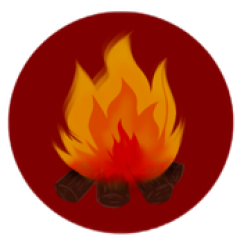The Outsider by Albert Camus

“Si tu veux être philosophe, écris des romans” (“If you want to be a philosopher, write novels”), Albert Camus once wrote in his notebook. That being said, like the work of a philosopher, this novel quite naturally poses more questions than answers. It’s a story about a character who goes through the events in his life without showing emotions, as he doesn’t believe in meaning — Much to the dismay of people around him, who perceive him as cold and inhuman — Which presents to us the question, “What makes us human?” My take on the novel is that it also shows us the chaos that ensues if we view our world in cynical or nihilistic terms, because then we wouldn’t have any reason to do anything. Try giving it a read and see what you think.
The Dip by Seth Godin

This is just a tiny book, like one that you’d buy as a gift — Yet I personally think this is one of Seth Godin’s best works — Because he just has a flair in presenting his ideas without needlessly complicating them. In summary, this book tells you that winners quit all the time — They just quit the right things at the right time. Also, don’t take on something unless you can be the best in the world at it, by being you. What does “The Dip” mean? — It’s the struggle period for anything that you’re doing. If you care so much about what you do that you don’t bother going through the Dip, then it’s right for you. If you don’t, quit that task and find something else that’s better for you.
Frankenstein : Annotated for Scientists, Engineers, and Creators of All Kinds by Mary Shelley / MIT Press

Here’s one boring fact — I hated reading when I was a kid, and a junior edition of Frankenstein was the first real book that I finished (Other books before that, I just pretended to have finished them — Sorry Mom). Another boring fact, okay last one — I did a year in Electronics Engineering before switching to my degree in Marketing, and I have to admit that I still have a soft spot for engineering related things — Which is why this edition of Frankenstein caught my attention. Frankenstein is a timeless warning about invention, as it reminds us that every new thing we create could be a double-ended sword — While it brings benefit in one world, it could potentially bring chaos in another. Accompanied by brilliant essays and notes on the societal consequences of unconfined progress in science and technology, this book helps us cultivate a sort of objectivity in ourselves — To weigh the good and bad of our creations before we set out to invent them, to remove hubris from the equation.
History Lessons by Jonathan Gifford

Not a famous book, but it definitely helped me appreciate history a lot more when I read it years ago. The subtitle of this book is “What Business Managers Can Learn From the Movers and Shakers of History” — It draws practical leadership lessons from stories of historical figures such as Abraham Lincoln, Hannibal, Napoleon Bonaparte and Lee Kuan Yew — All in a pretty good narrative. You’ll learn a lot of valuable things such as having a bold vision, strategy basics, and other essential traits to hone into your mindset as a leader.
The Book of Five Rings by Miyamoto Musashi

“The true science of martial arts,” Musashi wrote, “Means practicing them in such a way that they will be useful at any time, and to teach them in such a way that they will be useful in all things.” Musashi was a revered Japanese swordsman, and while he wrote this book as a text on swordsmanship, most of its content are relatable to daily life. You can find in it a lot of gems on strategy, mastery, and stillness. It’s also worth noting how wise and deft a warrior he was — Winning many fights against multiple opponents, without even a sword, as he had taught himself to closely attune to the rhythm of his opponents, and to not let his preconceptions govern his actions.
Tao Te Ching by Lao Tzu

Among other things, I think, this book teaches you to be one with nature — To avoid having excessive desires, to lead in such a way that you’re serving others without making yourself the center, to have the fluidity to bend and adapt to the ways of the world. This book also embodies the Chinese philosophy of “wu-wei”, or the action of inaction — It takes wisdom to know when to sit still and let events run their course, to know which fights are worth fighting. But of course, if you’re interested, give it a read yourself and see what lessons you might pick up — I’d love to hear what they mean to you.

